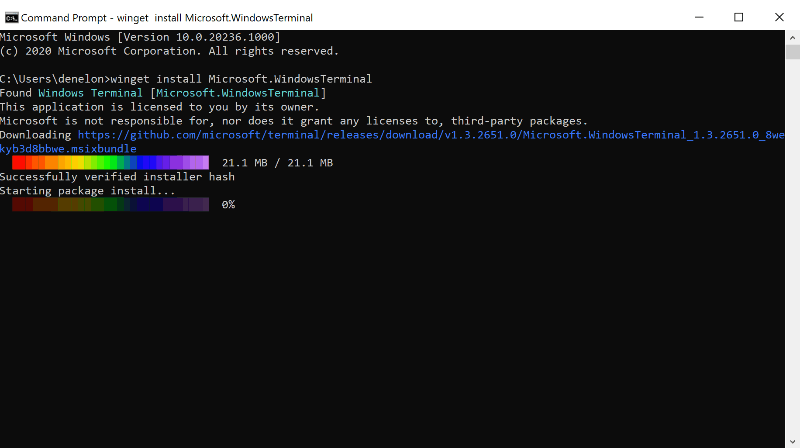At Build 2020, Microsoft announced a new package manager for Windows 10, called Windows Package Manager or simply Winget. After a year of public testing, the company announced that WinGet is ready for general availability.
Advertisеment
If you are not familiar with Winget, it is an automation tool that helps you speed up installing software on a computer. All you need to do is tell the system what software you want. Next, Winget finds the latest version (or the one specific release you need) and installs it silently in the background. Besides installing apps, you can use Winget to find information about packages, manage sources, upgrade apps, uninstall apps, etc.

Winget is a wonderful utility, especially for those frequently installing software on different machines. The only downside for a regular consumer is that Winget is command line-based without a user-friendly UI. Still, there are already more convenient Winget-based tools for browsing and installing apps and even creating scripts for batch installation with a more intuitive interface.
You can download Winget from the project's repository on GitHub. Microsoft also plans to integrate Winget into all supported versions on Windows 10. You can also join the Windows Package Manager Insider Program if you’d like automatic updates from the store, and you want to run it on your version of Windows 10.
Interestingly, last year, Winget ended up amid a controversy when a developer alleged Microsoft in stealing his product without any credit. According to Keivan Beigi, the creator of a now deceased package manager AppGet, Microsoft attempted to hire him and acquire AppGet for further development but later bailed out without notice. After six months of silence and a couple of days before the official announcement of Winget, Keivan received a message from Microsoft with the apology for failed hire and about the imminent release of Winget. After analyzing Winget's source code, core mechanics, terminology, and even the repository folder structure, Beigi realized that the project "borrows" many parts from AppGet.
Although the story received some traction in profile media, Microsoft completely ignored all allegations.
Support us
Winaero greatly relies on your support. You can help the site keep bringing you interesting and useful content and software by using these options:
